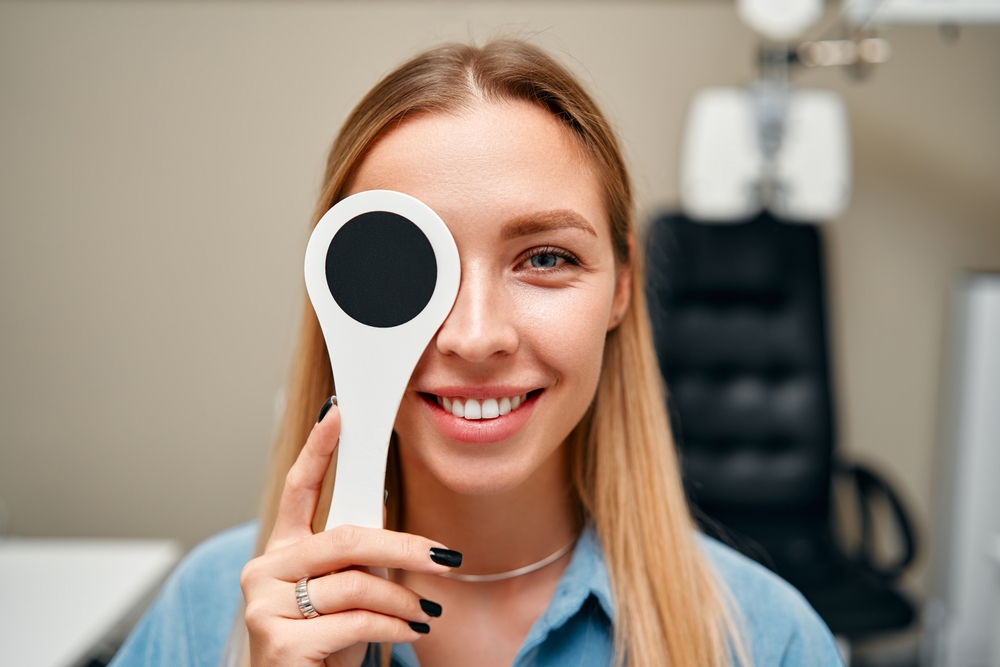
Find an office where you feel comfortable
If you dread your annual eye exam, then finding a doctor and staff who are welcoming, patient, and listen to you is the most important step you can take to reduce your anxiety. An environment where you feel rushed or pressured will result in a negative experience and cause more anxiety at your next exam. Ask friends for a recommendation or read online reviews. Look for keywords like “patient” “listens” and “compassionate”.
Call the office or visit in person to ask questions before booking an appointment. Ask how many patients the doctor sees in an hour. This will help you know if you will be competing with the clock for your doctor’s attention. Ask the staff to explain some of the tests that will be performed during the exam. If they take the time to discuss this with you before you have made an appointment, they will probably take the time to explain things when you are there for an exam as well.
Write a list of questions and concerns before you arrive
Do your eyes feel dry at certain times of the day? Do you wonder if you should invest in blue light blocking glasses for the computer? Be sure to start a list of things you want to discuss with your doctor. Doing this will eliminate worry that you will forget something important.
Bring someone with you
Having a friend in the room with you can help you relax. Ask them to help you listen to what the doctor says and give them a copy of your list of questions. This allows you to focus on the exam without worrying that you will forget what is discussed.
From a doctor’s perspective, I prefer that my patients bring a friend or family member with them. Since I do very thorough exams, my patients receive a lot of information about their eyes and glasses prescription. When I know that there is an extra set of ears in the room, I am more confident that my recommendations will be remembered and followed.
Ask for explanations of the tests performed during your exam
Knowledge is power! Some of the tests performed during an eye exam are uncomfortable or tedious. Ask why the test is important and what information it gives your doctor. Knowing that your doctor gets valuable information from a test can reduce your anxiety about it.
Your glasses prescription is not completely up to you
“Which is better, 1 or 2?” is one of the most feared questions in the English language. Many people worry that they will give the wrong answer and will mess up their new glasses prescription. Then they will be doomed to blurry vision for a whole year! With such a dismal outlook, it’s no wonder that so many people dread their vision test.
The truth is, your eye doctor considers several things when refining a new glasses prescription, not just your answers to their questions. I take multiple data points into account. Here’s the list of what I consider before finalizing your prescription.
Your current glasses prescription
Quality of the lenses in your current glasses (scratched coating, etc)
Your vision with your current glasses (20/20, etc)
The quality of your vision with your current glasses (guessing at the 20/20 letters is different from reading it with confidence)
The autorefractor reading
Your responses to my question “Which is better 1 or 2?”
The quality of your responses to my question (for example, “maybe 1?”)
The quality of your vision with lenses 1 and 2 (struggling to read vs. quick response)
Hopefully, seeing this list and knowing that you are not solely responsible for the prescription of your new glasses relieves some anxiety.
Eye doctors can provide you with valuable information about your eyes and overall health. They can help you solve long standing issues with your vision and discuss concerns with you. Being prepared for your exam, comfortable in the office, and relaxed during the tests can help you to take advantage of all your eye doctor has to offer.











